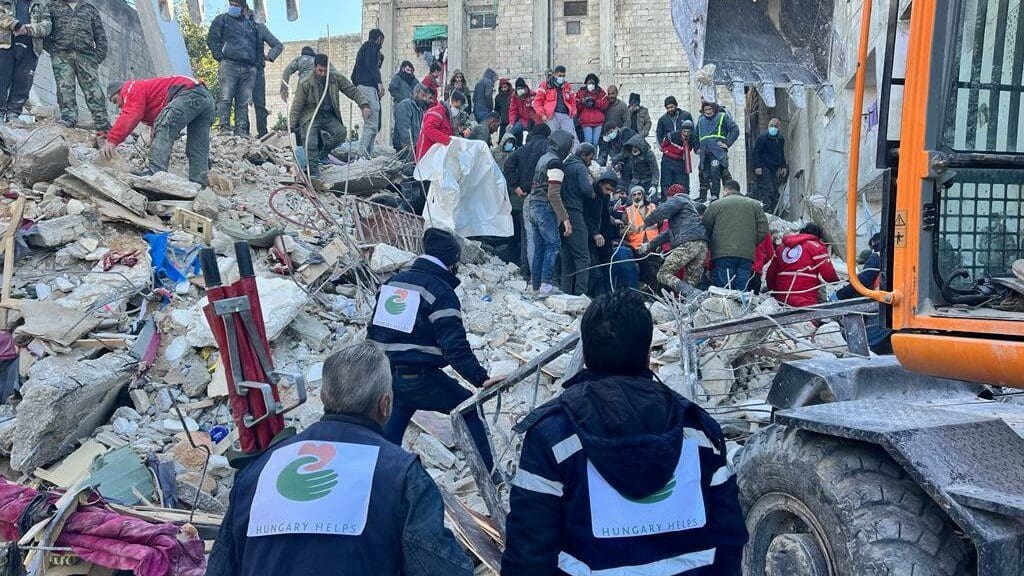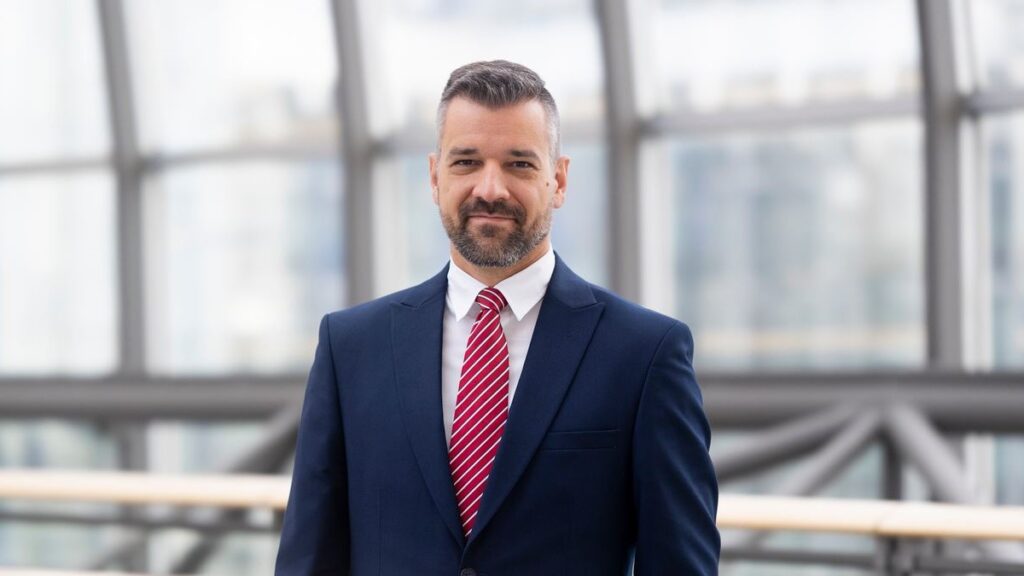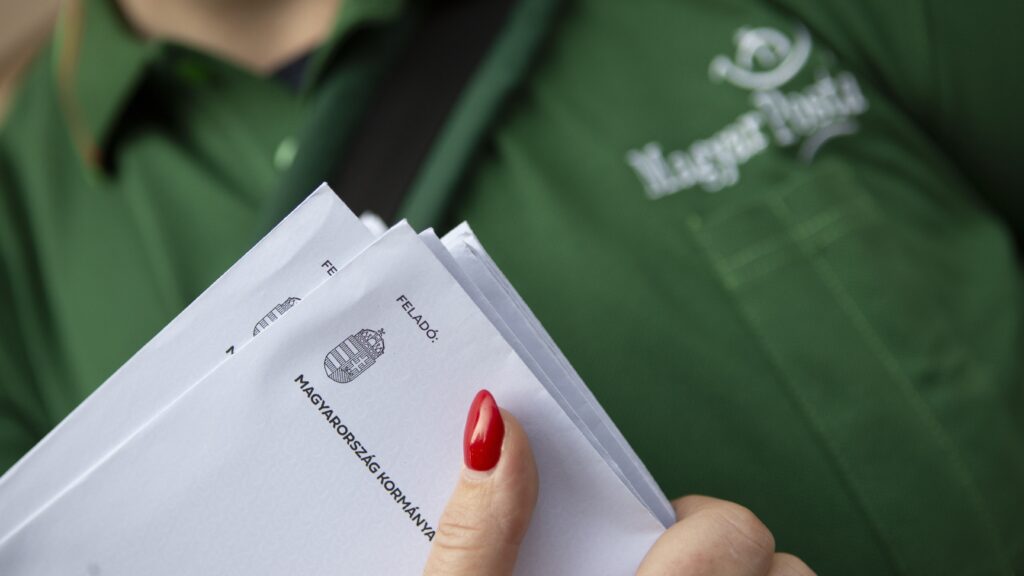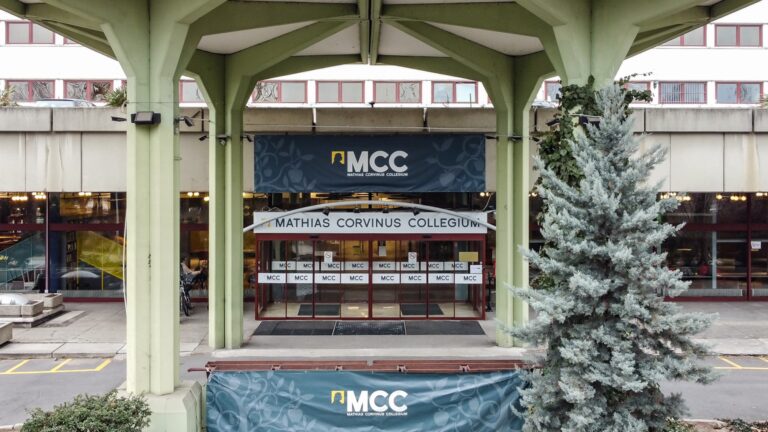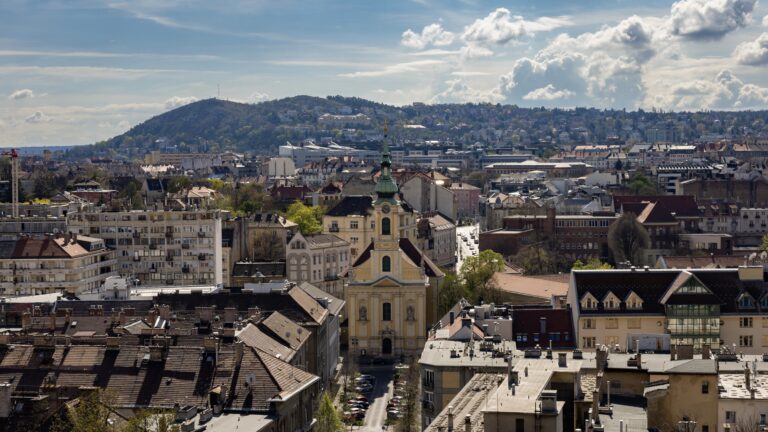During the 7th Brussels Conference on ‘Supporting the Future of Syria and the Region’, State Secretary in Charge of Aid to Persecuted Christian Communities Tristan Azbej announced that Hungary is providing aid worth 4.6 million euros to both Syrian residents and communities that are accommodating Syrian refugees in neighbouring countries. This assistance aims to cover the costs of restoring and operating infrastructure in schools and hospitals that are run by churches. The aid follows 1.2 million euros of support
Hungary offered earlier this year for reconstruction work after a devastating earthquake that hit the region in February.
During his conference speech, the state secretary emphasised that due to the protracting conflict in Syria, half of the country’s population was compelled to leave their homes, and 70 per cent of them are in need of humanitarian assistance. He highlighted that the earthquake in February worsened the existing damage to the country’s infrastructure caused by the war. Azbej also drew attention to the plight of the Syrian Christian community, which has significantly decreased in size due to persecution by extremists.
The Plight of the Dwindling Syrian Christian Communities
The Syrian Christian community, which is one of the world’s oldest Christian communities, has seen a drastic decline in numbers. From 2.2 million before the Arab Spring, the current Christian population stands at approximately 603,000, making up only 3.1 per cent of Syria’s total population of 19.4 million. The number of Christians in the country continues to decrease as many have fled conflict and persecution. According to the 2023 World Watch List compiled by the NGO Open Doors, Syrian Christians exceptionally suffered in 2022 due to violent persecution by Islamic militias. The Open Doors report highlights that leaders of historical church communities in northern parts of Syria where Islamic militias are active are at high risk of being attacked or kidnapped.
However, Baptist, Evangelical, and Pentecostal congregations are also vulnerable as they are perceived to have Western values and a missionary focus.
Public expressions of faith in areas where Islamic extremist groups operate are dangerous, making it risky to share the gospel. In these areas, church buildings have been frequently destroyed and repurposed as Islamic centres. In government-controlled areas, there used to be less control over Christians because of the war conditions, but as the authorities have regained power, so has the control over potential dissidents and others who could harm social stability with evangelism and conversion from Islam to Christianity. In most Sunni areas, Christians from a Muslim background experience particular pressure from their families and communities because their conversion is seen as a slight to the family’s honour; therefore, they’re at risk of being expelled from their family homes or worse.
However, family pressure is less intense in the Kurdish areas of the Autonomous Administration of North and East Syria as Kurdish Sunnis are generally less radical; therefore, converts from Islam can legally change their religion in these areas. Although the Open Doors report points out that these positive conditions have been threatened by the invasion of Turkish forces, which began in October 2019, reversing practically all of the improvements in religious freedom made by the Autonomous Administration in areas now under Turkish control. In the Tal Tamr subdistrict, Turkish-backed Islamist groups regularly launch artillery barrages and raids to capture the Assyrian Christian villages. According to a June 2020 USCIRF hearing entitled ‘Safeguarding Religious Freedom in Northeast Syria,’ Turkish armed forces attacked, murdered, kidnapped, raped, and detained Kurds and other ethnic and religious minorities, including Christians, destroyed their religious sites and moved internally displaced Syrians (IDPs) from other parts of Syria to the homes of minority refugees in the north.
This caused a considerable demographic change, preventing Christians and other minorities from returning to their villages.
‘Even a Gesture of Help is Enough to Make Syrians Willing to Accept the Difficulties and Return’
Under Islamist rule, vibrant cities like Idlib have lost their Christian communities. In a New York Times report, it was revealed that Idlib, which once had a flourishing Christian population, has lost virtually all of its Christian residents. Michel Butros al-Jisr, a 90-year-old man, is one of the three Christians left in the town. Mr al-Jisri can no longer celebrate Christian holidays with fellow believers in church since they have all fled and the churches have been locked up. In 2021, he had to spend Christmas alone at the city’s Christian cemetery, which no one uses anymore, sitting among the graves of his ancestors to mark the day quietly by himself. The life of Mr al-Jisri fell apart after Syria’s civil war began in 2011, shaking the government’s hold on large swaths of territory. In 2015, Islamist rebels stormed Idlib, took control, and killed a Christian man, Elias al-Khal, and his son, Najib, who for selling alcohol. Soon afterwards, they kidnapped Father Ibrahim, Mr al-Jisri’s priest and held him for 19 days. By the time he was released, the church library and archive had been pillaged, and most of the about 1,200 Christians who remained in the city until the rebels arrived had already fled or were on their way out. The city’s new rulers closed the church and banned public displays of Christian devotion, further fuelling the exodus. In 2015, only five Christians remained in Idlib; therefore, the rebels seized the the empty homes. Despite the collapse of his community, Mr al-Jisri has never considered leaving Syria.
The elderly man shared with The New York Times an old Arabic song he often sings to himself about love and a country that has not always loved him back:
‘O treasure of the Levant,
your love is on my mind,
The sweetest time, I spent with you,
You said goodbye and promised me,
Don’t forget me, I won’t forget you,
No matter how many years and nights you are gone.’
State Secretary Tristan Azbej recently visited Syria on a humanitarian mission and handed over the Greek Catholic Al Riaja School in Damascus, which had been destroyed in the Syrian civil war but revived by the Hungary Helps programme. State Secretary Azbej wrote in his Facebook post: ‘The institution, which accommodates 1,400 students, is not only a space for creating peace between religions but also an opportunity for those fleeing persecution and war to return home and also contributes to staying in the homeland.’ In a recent interview with Spirit FM radio, the state secretary provided an update on the devastating situation in Syria. He revealed that over the past decade, 500,000 individuals had lost their lives due to acts of war, half of the population has fled their homes, around 6 million people are currently displaced within Syria, and millions more are either on their way to or have already arrived in Europe.
He noted that while the acts of war are easing, the humanitarian crisis is getting worse in Syria. The once prosperous country now has a food security emergency, and since the health infrastructure has been destroyed, half of the population cannot access health and medical care. He highlighted that tragically, exacerbating an already devastating situation, an earthquake hit Syria and Turkey at the beginning of February, in which tens of thousands died. As Mr Azbej put it, this was the last straw for many, especially in Aleppo where the infrastructure that had been rebuilt after the devastation of the civil war was destroyed again by the natural disaster. The state secretary also raised attention to the fact that while most Western rescue teams could not enter Syria to help after the earthquake, due to political and diplomatic reasons,
Hungary Helps was able to provide immediate assistance as it has had a continuous local presence for years.
The Government of Hungary sent 47 tonnes of aid to the earthquake victims in Syria under Hungary Helps Programme.
State Secretary Azbej highlighted that despite the continuous sufferings Syrians have been facing, many still had the faith to stay or return to their homes. ‘The Syrian people suffered the effects of a bloody civil war for more than ten years. There are hundreds of thousands of children in Syria who, although they are teenagers, have never been able to attend school. Many people have died, almost every family is mourning someone, and providing for the family is a daily struggle…we are talking about people who fled the horrors of war, their hometown, and even often their country, and yet we saw that even a gesture of help is sufficient to encourage them to accept the uncertainty and difficulties and return to their homeland. No sane person does this unless they believe in something, and these people believe in providence,’ Mr Azbej concluded.

